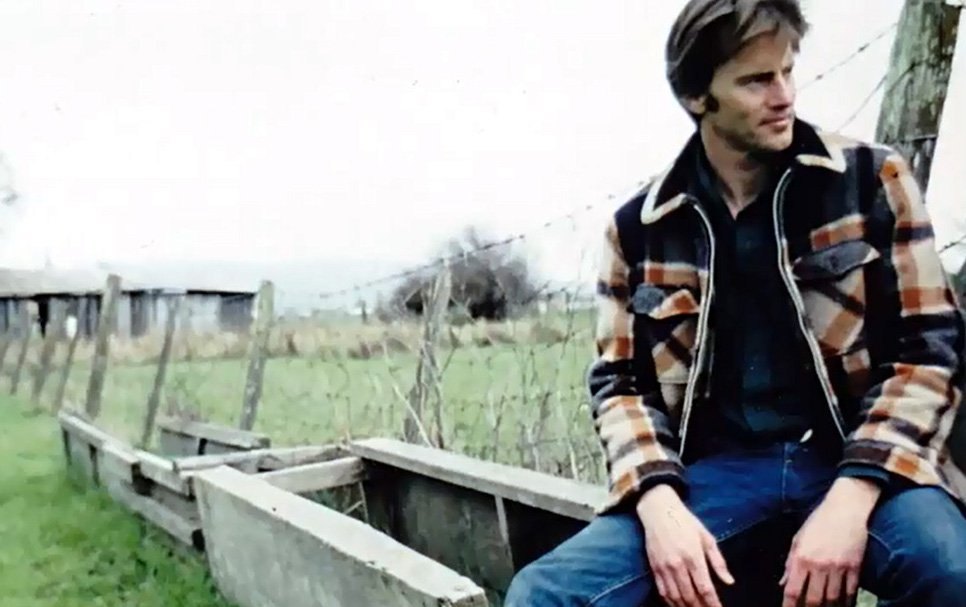by Eric Blume
 Sam Shepard in the early days of fame
Sam Shepard in the early days of fame
Although it’s been well over a decade since we’ve had a major contribution from Sam Shepard, his death yesterday at age 73 feels momentous. He’s our only American playwright to have won a Pulizer Prize as a writer and then gone on to an Oscar nomination for his acting. He was a symbol of masculinity and a man of great mystery...
Shepard wrote several provocative plays in the early 1970s but then became the great new hope of American theater when he won that Pulitzer for his stunning 1978 play "Buried Child". Shepard’s shattering family saga about disillusionment and a vanishing American Dream was written in a poetic language that dipped in and out of naturalism. It was a work of pure theatrical imagination, harkening back to classic family dramas like "Death of a Salesman" and "Long Day’s Journey into Night," but Shepard had a dreaminess, a distance, and a darkness all his own. While the play didn’t actually reach Broadway until an excellent 1996 revival (with killer Tony-nominated performances from Lois Smith and James Gammon), the play made a huge impact on the theater after its initial production. If you took an acting class in the 1980s, you were plunging into scenes from "Buried Child," and the pressure on Shepard to save the theater was enormous.
While Shepard went on to write over fifteen plays in the ensuing years, he never achieved commercial success in the theater. But at least three of his other plays: 1980’s "True West", 1983’s "Fool for Love", and 1985’s "A Lie of the Mind" are considered major works and receive continual revivals. Oscar winner Philip Seymour Hoffman and Oscar nominee John C Reilly both received Tony nominations for a 2000 revival of "True West" where they swapped roles now and again, and Sam Rockwell and Nina Arianda gave wonderful performances in the "Fool" revival three years ago.
 Shepard’s plays worked against huge canvasses and tackled big themes. They were messy and difficult, and it’s no surprise that he wasn’t able to find mainstream fame in the theater. His transition to being an actor was unsurprising, as Shepard had rugged good looks and worked his cowboy archetype to strong effect. One wonders if Shepard’s heart was ever fully into the acting, but his low-key onscreen energy was a counterpoint to the pained intellectual nature of his writing, and it gave us a chance to witness the complexity of this artist.
Shepard’s plays worked against huge canvasses and tackled big themes. They were messy and difficult, and it’s no surprise that he wasn’t able to find mainstream fame in the theater. His transition to being an actor was unsurprising, as Shepard had rugged good looks and worked his cowboy archetype to strong effect. One wonders if Shepard’s heart was ever fully into the acting, but his low-key onscreen energy was a counterpoint to the pained intellectual nature of his writing, and it gave us a chance to witness the complexity of this artist.
He famously met Jessica Lange on the set of Frances in 1982, and they remained a couple for 27 years until their breakup in 2009. They were rarely seen together publicly, and in fact the news of their breakup didn’t make proper headlines until two years after they’d parted. They had two children together, and one can only imagine what their dinner conversations were like. There’s a fun mystery there: you could believe they had a volatile, combative, intense relationship or at the same time imagine that they were strikingly ordinary and maybe a little everyday boring. They never collaborated onscreen after Crimes of the Heart in 1986, and surely that was no mistake on their part.
 Oscar nominated for THE RIGHT STUFF (1983)
Oscar nominated for THE RIGHT STUFF (1983)
Shepard delivered lovely performances over the decades. He was a perfect visual inspiration for Terrence Malick in 1978’s Days of Heaven; a willowy wonder opposite Sissy Spacek in 1981’s Raggedy Man; a charmer who brought out the sexy in Diane Keaton in 1987’s Baby Boom. He even made a tiny late-career appearance in August: Osage County a few years ago. But without question, his acting hit its height in his Oscar-nominated work as Chuck Yaeger in Philip Kaufman’s 1983 film The Right Stuff. It’s not a big part, but his laconic confidence is at its zenith, and again his acting holds a mystery. While his iconography as a symbol for the American West and the Lost America is front-loaded, he doesn’t play a symbol. He keeps Yaeger in a human place, while somehow never fully connecting him to the audience. He lends the film a potent authenticity, and never felt more right in a movie.
Sam Shepard’s career was unorthodox and more than a little confusing. He didn’t seem concerned with traditional success and never kowtowed to the lowest common denominator. It seemed like he was always seeking, and his raw talent was overwhelming. He’ll be missed.